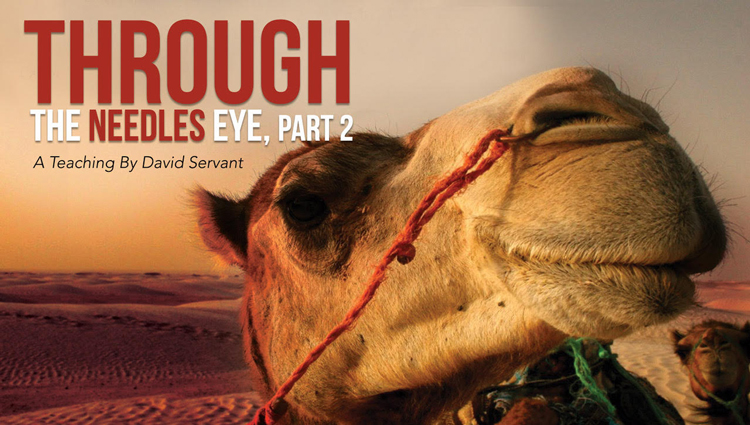Dear Beloved Readers, I intended to send a followup article this month to February’s e-teaching on questionable beliefs Christians sometimes hold concerning modern-day Israel. And I’ve been working diligently on that followup article over the past few weeks. Due to an exciting opportunity at Heaven’s Family this month, however, I decided to postpone that followup article until next month in order to send you the special e-teaching below. I will return to the subject of modern-day Israel in April. For now, I hope you will enjoy this month’s e-teaching and prayerfully consider participating in the opportunity mentioned at the end. Thanks so much, David
There is a biblical story set in Samaria, the capital city of Israel, during a time when it was surrounded by a foreign army. The siege dragged on for months, and food prices behind the city walls had skyrocketed. People were dying of starvation. Some of the Israelites resorted to cannibalism in order to survive the famine. The crisis had reached its tipping point, and death was certain, either from hunger inside the city or from the sword and spear outside.

You might be wondering why I would write on the subject of polygamy. Let me assure you it is not because I’m advocating it for anyone or considering it myself. I think polygamists—whether they be ancient biblical characters or their modern counterparts—generally err on a grand scale. I also think, however, there are some good reasons to study what Scripture has to say on the subject. One is because it can teach us something about our own relationship with God. I hope to provoke your thinking, as always. But first, some trivia:

In this final article that addresses “Divine Divorce Doctrine,” I want to respond to some of the common arguments and objections of those who advocate divorce for anyone who has been previously divorced and remarried, followed by remarriage to their original spouse if possible, or celibacy if not possible, until their original spouse is dead.
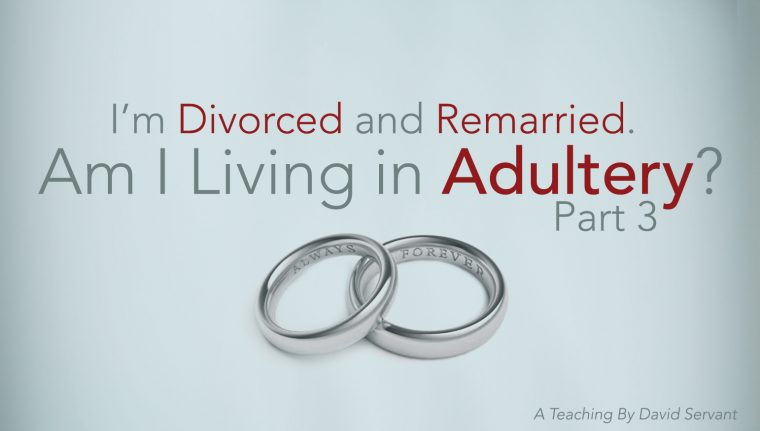
My hope is to rescue those who are coming under the influence of Divine Divorce Doctrine—before their marriages and families are also left as carnage in its foul wake.
Last month’s e-teaching generated a lot of interest, receiving 4,700 views on our website so far. In that teaching, I did my best to show that God does not require of divorced and married Christians what “Divine Divorce Proponents” claim He requires, namely that they divorce again and remarry their first spouse, or live celibate lives until that person, to whom they are allegedly “still married in God’s eyes,” is dead. If you didn’t read that article, it would be best that you do before you read what follows.
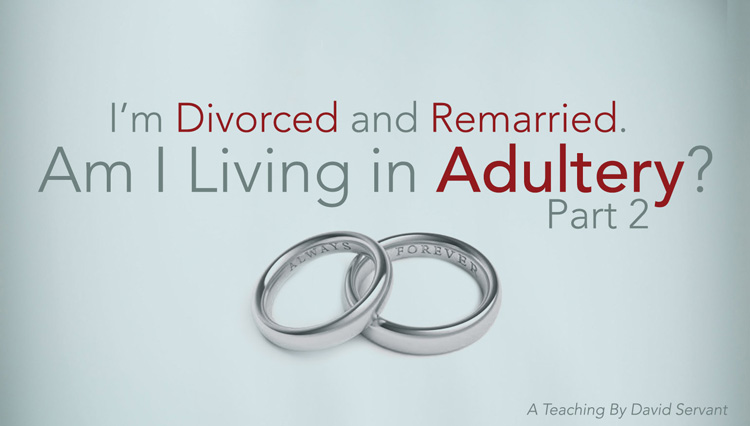
One of the earliest lessons learned by the Mayflower pilgrims who founded Plymouth Colony is one that many Americans seem to have forgotten or never learned. It is a lesson about human nature, poverty, prosperity and toxic charity. It has profound implications for ministries like Heaven’s Family and for any Christian who is trying to follow Jesus and help the poor. I heard the story some years ago in a series of books that many homeschooling families use to educate their children known as the Uncle Eric Series, authored by Richard Maybury. Today’s article is his. — David
The Great Thanksgiving Hoax
by Richard Maybury
Each year at this time school children all over America are taught the official Thanksgiving story, and newspapers, radio, TV, and magazines devote vast amounts of time and space to it. It is all very colorful and fascinating.
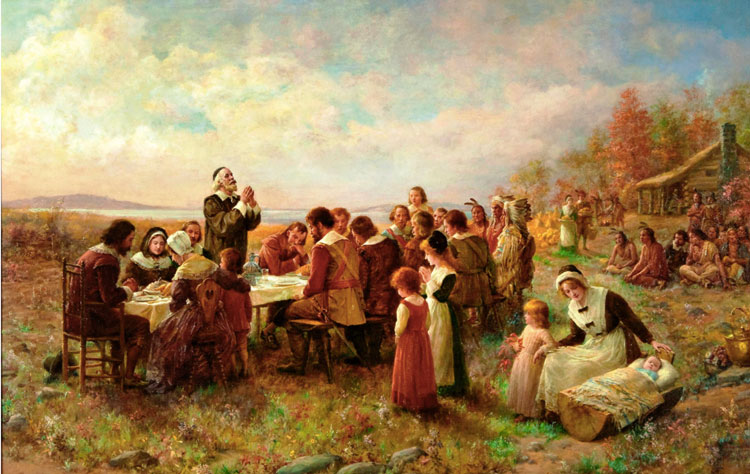
It is also very deceiving. This official story is nothing like what really happened. It is a fairy tale, a whitewashed and sanitized collection of half-truths which divert attention away from Thanksgiving’s real meaning.
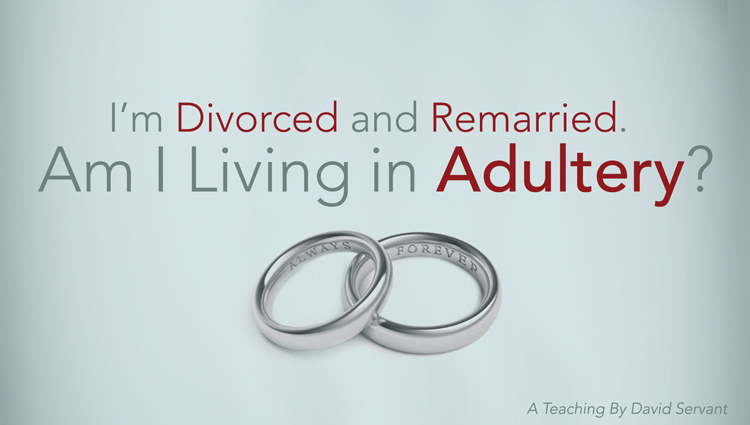
Imagine this:
John is an unregenerate drug-user who, during a weekend fling in Las Vegas, falls for a flirtatious bartender named Lisa and marries her at the Little Neon Chapel. Their marriage lasts one week.
Fast forward to 20 years later. John is a completely different man. He’s been born again and drug-free for 16 years, and he has been married for 15 of them to a devoted Christian woman named Karen. They have 4 beautiful children, ages 5 through 14, whom Karen homeschools, primarily because they want to make sure that their children are raised in the “nurture and admonition of the Lord” (Eph. 6:4).
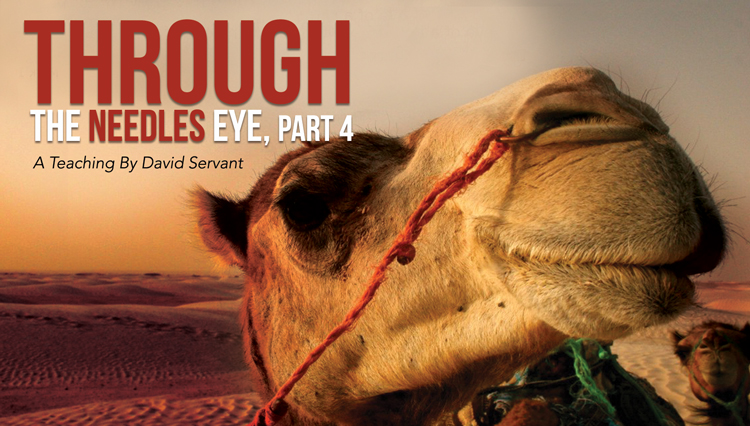
Dear Friends,
Below is the third chapter, freshly edited, of my old book Through the Needle’s Eye. This chapter is a continuation of the same subject as the previous one, that is, an honest look at Jesus’ encounter with the rich young ruler. The importance of the subject matter cannot be overstressed, and I’m so thankful that there are folks who are willing to read.
This chapter also takes an honest look at commonly-held beliefs about salvation and the grace that God is offering, as well as the story of Zaccheus, who did what the rich young ruler would not do. What was impossible with man was proven to be possible with God: Zaccheus squeezed through the needle’s eye. May God help us as well. (more…)
The e-teaching that follows, which I originally wrote after Hurricane Katrina bombarded New Orleans in 2005, seems appropriate to re-publish now. For the first time in recorded history, two Category 4 or higher hurricanes have struck the U.S. mainland in the same year. “That is extraordinary by itself,” according to AccuWeather founder Dr. Joel N. Myers, but “also unprecedented is that this particular storm, Irma, has sustained intensity for the longest period of time of any hurricane or typhoon in any ocean of the world since the satellite era began.” Might there be a divine message hidden in these recent hurricanes? Keep reading! – David

Over the past few months in my e-teachings we’ve been taking a look at who God really is—as He has revealed Himself in Scripture—which is quite different than how He is often revealed in modern Christendom. We’ve not only considered His amazing love and mercy, but also His “holy hatred.” That holy hatred is often referred to using other phrases, such as “God’s righteous wrath,” or “His holy indignation,” but all refer to the same aspect of God’s character. And as we’ve seen, God’s Word does indeed speak of His hatred, using the very word hate (for proof, click here to read last month’s e-teaching). There is no escaping this.
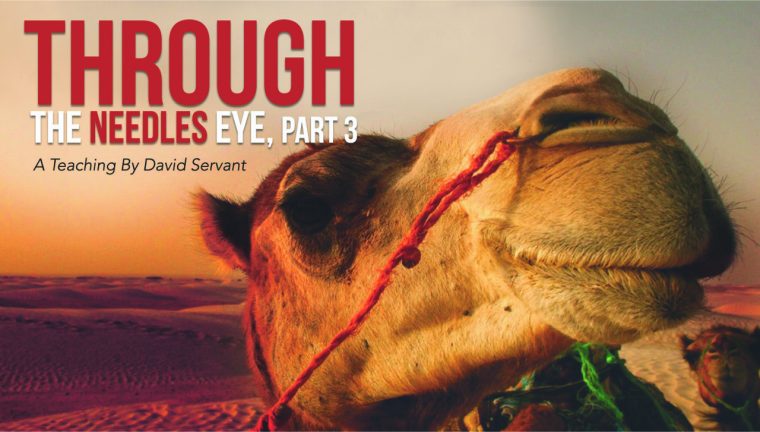
Chapter Two
Jesus Loves a Rich Young Ruler (Mark 10:17-30)
I hope you are still praying sincerely for God’s help. If you are intending to read this chapter, that is a good indication He’s answering your prayers! Now pray that God will help you read with an open heart, honestly, just like a child. The reason that Scripture is often “difficult to understand” (as we say) is because we don’t want to accept its simple message.
The study of the rich young ruler will require two chapters, because we must consider the very nature of salvation itself. The story of the rich ruler, when interpreted honestly, raises questions about much that is often passed off as “the gospel” in modern church circles. Pray that God will give you clarity of understanding so that you can do what He wants you to do. He will answer that prayer. He always answers those kinds of prayers.
(more…)












